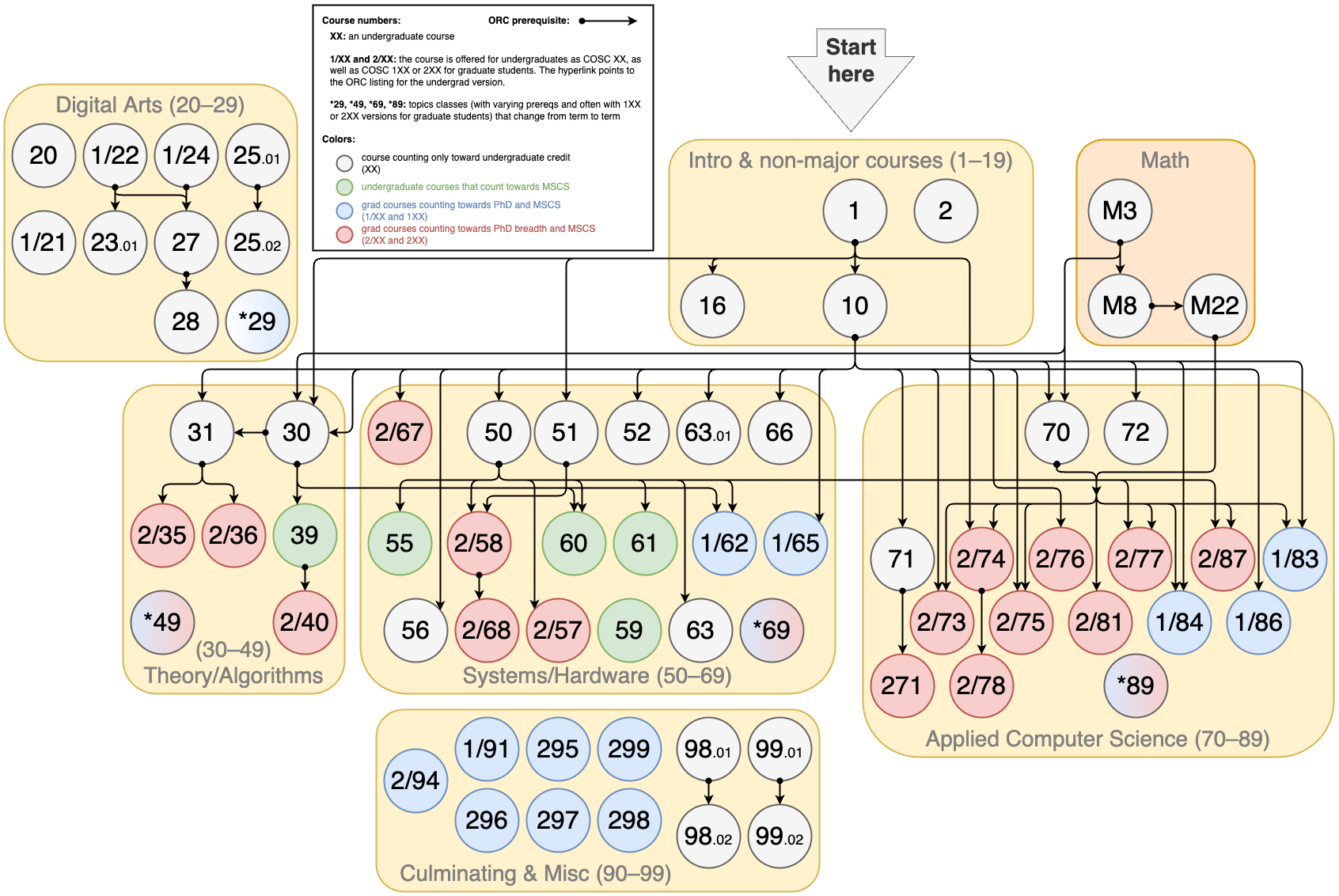Undergraduate Courses
The Dartmouth Course Descriptions and Requirements contains brief descriptions of the various courses offered by the department. For detailed information about the terms and times that courses will be offered, the most reliable source is the Timetables page on the Registrar's site. (Click on Subject Area(s), then search for COSC/CSDA courses.) In the links to the left we give brief descriptions of the kinds of courses offered by the Department of Computer Science, and also include some advice on taking them.
Course Dependency Graph
The graph below provides a visual representation of the courses we offer and the prerequisite relationships between them. Open an interactive version where each node is a clickable link to the corresponding ORC entry. Last updated Fall 2020.
